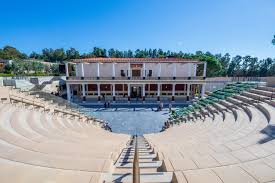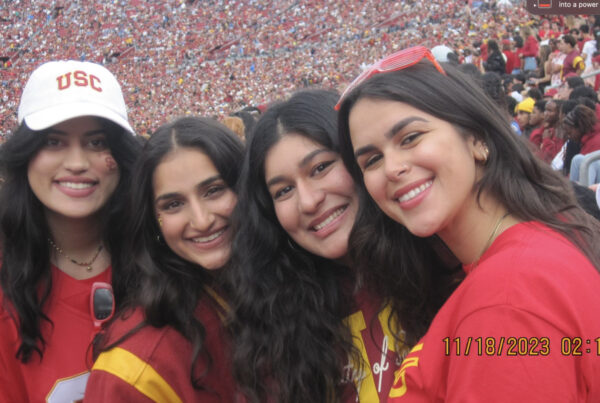One of the easiest things to appreciate about USC is how its size and range offer so many opportunities to each student. As a junior, I take it for granted that I am majoring in Biomedical Engineering while minoring in Classics until I talk to friends at other schools, who complain about not even being able to take any classes outside of their major choice, especially my other friends in engineering. Viterbi asks a lot of its students as far as class requirements go, but they also work hard to make sure that students can explore the rest of the school.
To give some quick background Classics is the study of classical civilizations, usually focusing on Ancient Greece and Rome but including quite a few other lesser-known cultures. I chose my minor because throughout my entire life I have been a mythology geek. One of the first books I read on my own was a book on Greek myths. From there it spiraled into an addiction to Percy Jackson and seven years of learning Latin in middle and high school. Coming into college, I knew I wanted to pursue engineering, but I didn’t want to let go of Classics either.
The process was incredibly easy to add as a minor. My wonderful advisor, Dr. Chris Noll, gave me all the information I needed to officially declare the minor as well as figuring out what the requirements were and how I could fit it into my schedule. He did all of that for me even though he knew close to nothing about the Classics department beforehand.

Having my Classics classes has been really important to me as a change of speed from the normal engineering courses. I think everyone in Viterbi should try and find something outside of engineering to focus on just for its effects as almost a mental palette cleanser. Engineering requires a slightly different thought process than other classes and 16 units of math and science in a semester can become a lot to handle. I use my Classics courses as a way to exercise other parts of my brain whether it be in trying to interpret Vergil’s political stance in the Aeneid or learning how Ovid threw shade at the emperor without being executed for it.
While these may seem entirely unrelated and useless to my engineering courses, there’s always something that I can draw from it. In reading journal articles on the effect of a new nanoparticle on brain cancer, I see the scientists using the same techniques as Ovid to hide the fact that their results don’t factor in the toxicity in the surrounding brain cells. All knowledge is useful and applicable which is what Engineering+ at Viterbi is all about.
Having an outlandish minor may mean getting strange looks at the beginning of interviews after you’ve given your elevator pitch, but it’s also one of the best things about Viterbi. Most of my friends have an extra interest or minor that makes them unique. I love my friends from engineering because none of us are the same. Not one of us are carbon copies coming out of engineering as robots; instead, everyone has a passion that helps give them a different perspective on the same problems.




